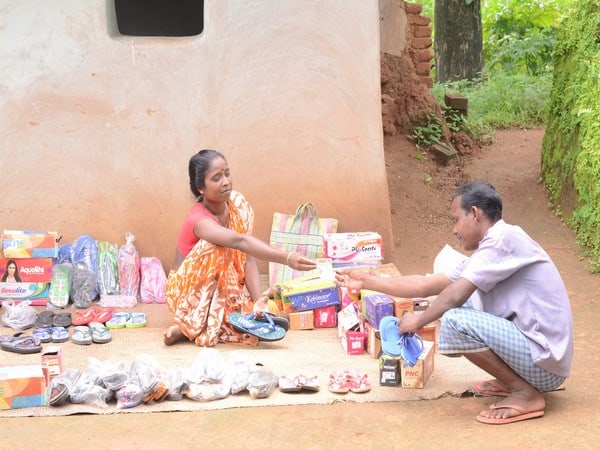Dumka: For the success of democracy, it is very important that the sections which are poor and deprived, who have suffered from neglect and exploitation for centuries, are given proper justice and equal opportunities by the
government.
After independence, the governments of almost all the states, along with the Center, have made efforts in this direction. The Welfare Department of Jharkhand Government is giving free assistance to the poor families, so that they can stand on their feet and become self-reliant.
According to Dr. Lewis Marandi, Welfare Minister of Jharkhand, the state government the tribal families, whose homes do not have any earning member, have been linked to this scheme. He said that the welfare department has now identified two thousand such families where the woman is the head of the family in two districts of Chaibasa and Dumka, who have no one to else to support their families; they are disabled or their family life is in crisis.
In order to raise their living standards and provide them with a respectable life, these families are being given material according to their needs.
The Jharkhand government is determined to provide a fresh start to the poor tribals, through the organisation named ‘Bandhan Kangar’. Women’s labour has special significance in the life of Santhal (Adivasi tribe) families; they work hard in the day to raise two square meals for their family. In such a situation, this scheme has increased self-reliance now among the poorest of poor families.
With the aim of making this scheme a collective success, these women have now formed their own groups and are now self-employed. Women’s groups are supporting their families by doing small businesses, including goat rearing, piggery, poultry and a light breakfast shop. For the smooth running of this scheme, a budget provision of Rs.2 crore 35 lakhs has been made by the Department of Welfare, Government of Jharkhand. Under this scheme, a goal of
two years has been set for making such families economically stable.
Women’s groups meet each week, where government assistance is provided according to their needs. On behalf of the organisation, women groups are taught how to save money from their profits and the benefits of self-employment. Along with this, those who do good work for the organisation also receive encouragement.
Paku Tudu of Haripur Panchayat of Dumka district says that she is supporting her family by running a grocery store. Dozens of women, including Parvati Mohali of Vijaypura, Putul Mohali, Chandravati Devi of Bedia, Prasima Mandradi of Gidhani Pahadi, Pramila Mandradi of Siddhartha village, and Fulunai Hembram of Saruwa said that they earn approximately four thousand rupees per month through self-employment.
Team leader of the Mosalia Block, Sanjeev Pal, said that other women of the village are also being motivated by seeing the successful women. He said that through this self-employment, a number of women, including Surajmuni Murmu of Manradihah, Khurja of Murshidabad of Jharkhand, Josha Hansda of Haroraidih, Sarita Tudu of Katahlia, and many others have achieved their status today and are living their lives respectfully.
Women of several villages including Haripur, Saruwa, Bandarjori, Kaharabil, Ranidinda, Gadi, Koraiya, Rampur, Berebank, Ghasipur, Dalahi, Sampadhar, Suggapahadi, Amagachhi, Belialozore of Dumka district took advantage of this scheme and learned how to earn their living through self-employment in a very short period of time. So far, goods have been provided for employment to several families in Dumka district. The goal of eliminating poverty among extremely poor families is being implemented by the government through the organisation ‘Bandhan Kangar’.
The government’s plan is not limited to making women self-reliant but also to send the children of these poor families to schools. Special attention is also given to the health of these women. Efforts are also being made in the direction of their capacity building with the economic advancement of the women’s group.
This scheme is working as a ‘Sanjivani Booti’ (magical herb) for the families of these poor tribal ladies. It is not only that the women are becoming self-reliant, but a positive change can be seen even in the villages. Women have now stopped borrowing money from the money lenders for the purchase of every small thing. Achievement can be made in this direction to develop an understanding amongst the rural tribal women and empower them. In the field of sustainable development, this scheme will prove to be a meaningful and historical step.
The views expressed in the above article are that of Shailendra Sinha of Charkha Development Communication Network.
[source_without_link]ANI[/source_without_link]

